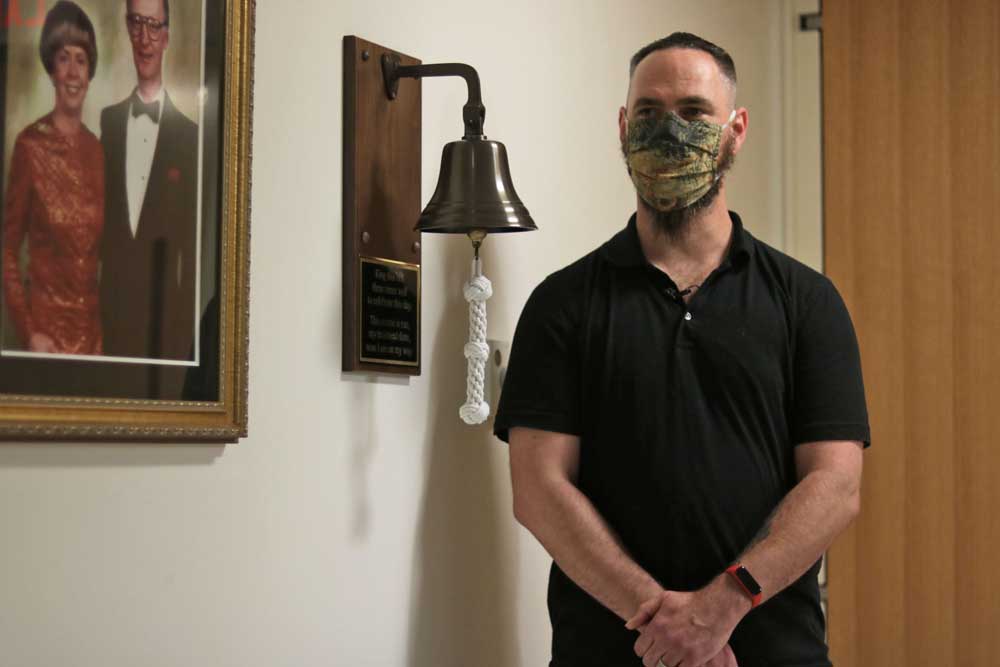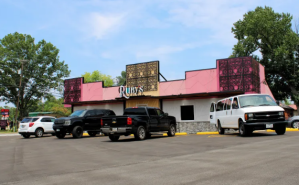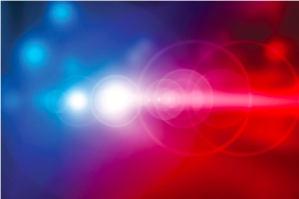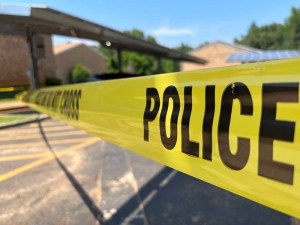Navy veteran, leukemia survivor donates cancer bell to UT Health Tyler
Published 11:30 pm Friday, April 16, 2021

- Navy veteran and leukemia survivor Jeffrey Hickerson talks about his cancer journey. Hickerson donated a cancer bell to the Six North, the Poindexter Oncology Unit at UT Health Tyler on Friday, April 16, 2021.
As tears streamed down from his eyes and onto his face, Jeffrey Hickerson reached for the pillow he was leaning on. He laid on the hospital bed, hopeless and overwhelmed. He took a deep breath, buried the pillow in his face and yelled all the things he was feeling inside. It was anger, and it was confusion. It was frustration.
It was March 17 last year. Everything had been moving so fast those days. Looking back, most of those days are now a blur to him.
Trending
“It’s acute myeloid leukemia. We’re going to bring the nurses in here in a few minutes to hook you up and start you on chemo,” his doctor said.
Three hundred and ninety-five days ago, Hickerson was supposed to be traveling to North Carolina to visit his family when instead, he was rushed to the emergency room from the veteran’s clinic because he was thought to have been suffering a stroke.
It took him a while before he gathered his feelings and decided he was going to fight.
After he screamed into the pillow, he put the pillow back behind his head and said, “All right, let’s do this.”
Never did the Navy veteran think that a year later, he’d be donating a cancer bell to the oncology unit at UT Health Tyler, where he received treatment and compassionate care.
He was stuck in the hospital for 30 days after his diagnosis. These were the first days through his journey with cancer.
Trending
“The emergency room, before they brought me up here, just said, ‘Well you didn’t have a stroke but you’ve got some kind of blood cancer.’ That was a slap in the face. I didn’t think I’d quite heard him right. That whole week, I was kind of in denial. I wanted it to be wrong,” Hickerson said.
The same day he was told he had cancer was the same day he started chemotherapy, seven days a week, 24 hours a day. He stayed in the hospital his body was breaking down from the chemotherapy. It would be a while before he would recuperate.
“I was scared to death. Coronavirus, March, a year ago, was already extremely scary. Nobody knew anything about it and the main things that I was hearing were, older people, immunocompromised people, like my fiancé who has lupus and cancer patients are the high risk and are the most likely, if they catch it, they’re not going to survive. So I was scared to death,” he said. “I wanted to lock myself in a room and not go anywhere, not interact with anybody. I’m not an extremely outgoing person, but I’m not a recluse. It was a lot to take in.”
When he arrived at the UT Health Tyler’s Poindexter Oncology Unit amid the breakout of COVID-19, there were guidelines in place that did not allow Hickerson to have his family by his side.
When the nurses first met him, they knew he couldn’t go through it alone. So they gathered and decided to fight for him.
“On his face, we could see the anxiety and the worry and the not having his family here and it was tearing us apart,” said Tawana Burgess, clinical manager of Six North, Poindexter Oncology. “My nurses ran to my office and said, ‘Look, he cannot go through this by himself. He’s got to have some support.’ I immediately went to my directors and they went on to higher up and we got them to agree that cancer patients needed to have family.”
From that day on, each cancer patient at the hospital was able to have one family member with them.
“This man is a fighter from the day he started. His positivity overwhelmed us and I just thank him that I got to meet him as a person. He gave me inspiration. For him to donate this for our future cancer patients to be able to ring, that’s a very important day for them, so we thank you,” she said.
As he began treatment, Hickerson said he met his new family at UT Health.
“It truly showed me how great this staff was and how caring they were for somebody that they’d only known for a few days, to be able to do everything they could to fight for me to have people here to fight with me,” Hickerson said.
On April 12 last year, his bone marrow biopsy came back, letting him know he was already in remission. He still had to return to UT Health Tyler every month to complete one week of chemotherapy to finish his treatment to make sure he stayed in remission.
He finished chemo and left the hospital on a Saturday in September. He had an appointment Monday at HOPE Cancer Center to get a shot to help his immune system.
That same day, he rang the cancer bell at UT Health East Texas HOPE Cancer Center.
When he rang the bell that day, he posted a video someone took of him to his social media. His nurses at UT Health were among the first to comment.
“The first one to comment was actually one of the first nurses to take care of me,” he said. “Candace, she commented, ‘I wish we had a bell at six north (Poindexter Oncology Unit) so we could share these kinds of experiences.’ That’s when it clicked in my head, that’s the least I could do to pay them back and to make sure that future cancer patients here had a goal, something to look forward to, when they do beat cancer.”
The Navy veteran officially donated the cancer bell Friday afternoon to the oncology unit at UT Health Tyler, where he was treated for leukemia last year. He was the first to ring the bell.
“When I was able to ring my bell over at HOPE cancer treatment center, it meant a lot to me to be able to ring the bell because y’all helped me get through that, but I really had wished that I could have rang the bell with my new family. That’s why I wanted to do this, so that future patients, future family members for y’all, would be able to share this experience,” Hickerson said.
There is a poem on the bell that now sits on the sixth floor of the hospital. The poem is especially significant because the author of the poem is a retired Navy Seal. It made it more personal and fitting for Hickerson.
“Ring this bell
Three times well
To celebrate this day
This course is run,
My treatment done,
Now I am on my way”
“It’s extremely heartwarming to be able to rejoin with most of them. I haven’t seen (the nurses) since September. With COVID-19 going on, I haven’t wanted to come back to the hospital, but I have wanted to come back to see them,” Hickerson said.
Burgess attributed Hickerson’s success to his positive attitude.
“He has been the most positive. On the first day, he was scared to death and all the different changes going on, it rocked his world. I’ve never seen anybody as positive. He fought like a warrior,” Burgess said.
Hickerson will be traveling to Nashville to receive a stem cell transplant, the course of treatment recommended for him to stay in remission. If he stays in remission for two years following the transplant, Hickerson will officially be considered cured.
“Am I dreaming? It still doesn’t quite feel real that I made it through, let alone that I was able to do this,” he said.







